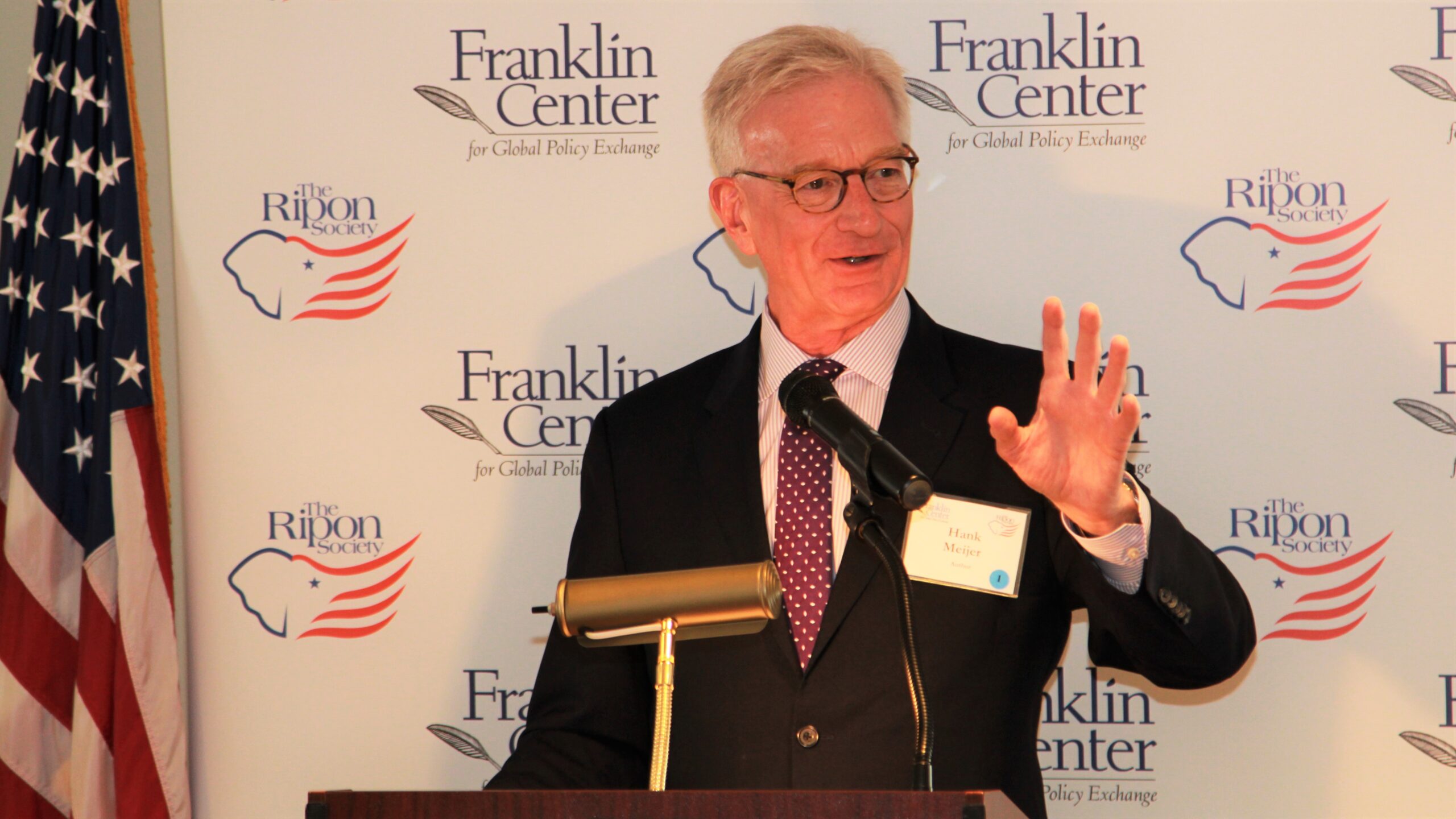 Businessman & Author Hank Meijer Discusses Life of Late Senator and the Lessons for Today
Businessman & Author Hank Meijer Discusses Life of Late Senator and the Lessons for Today
WASHINGTON, DC – “Arthur Vandenberg may be the most important political figure of the 20th century for whom there was no biography,” says Hank Meijer, who recently authored the long-overdue narrative of one of the most influential Senators of the twentieth century.
Though he is otherwise known for his role as executive chairman of the Midwestern grocery chain Meijer, in 2017 Hank Meijer published his second book, Arthur Vandenberg: The Man in the Middle of the American Century. Meijer inherited the papers of a “would-be biographer”, which he says gave him “a sense of mission” to complete the biography over the next twenty-plus years. Meijer joined The Ripon Society on earlier this month to discuss his recent publication and what he’s learned of former U.S. Senator Vandenberg’s character.
“He went to the Senate as a Republican when Grand Rapids was a Republican City. Michigan was a Republican state, and really much of the U.S. outside of the south was Republican. Then comes the Wall Street crash and the Great Depression and he finds himself as a Republican on the outside looking in throughout Roosevelt’s administration.
“The one thing he did achieve early on in The New Deal, coming out of the banking crisis in Detroit and against the wishes first of President Hoover and then of President Roosevelt, was legislation for savings deposit insurance, feeling that was the best way to restore confidence in banks. So, the FDIC was really his brainchild, and although it might be the most effective measure of The New Deal, Roosevelt was only too happy to take credit for it.”
Meijer went on to paint a picture of the political dynamics that Vandenberg faced during Roosevelt’s presidency. Despite their differences, political leaders like Presidents Roosevelt and Truman and Senator Vandenberg were able to come together for the task of constructing the United Nations.
“Towards the end of the war, Roosevelt realizes he doesn’t want to make the mistake that Woodrow Wilson made after World War One, when he had no Republicans of any stature on the American delegation… Roosevelt realized, “I’ve got to name Vandenberg. I don’t like the guy, but I can’t not have him on the delegation to San Francisco in the summer of 1945 to organize the UN.
“So, Vandenberg finds himself, instead of being on the outside looking in, being in the forefront of American foreign policy making. And Truman is, like Vandenberg, a creature of the Senate and knows he needs Vandenberg’s support to approve any post-war treaties, and they have a mutual respect for one another. That’s when bipartisan cooperation really kicks into high gear.
“After the Truman Doctrine comes the Marshall Plan, and Vandenberg worked so closely on that because in ’46, he became chair of the Foreign Relations Committee when Republicans regained the majority. Vandenberg and Marshall worked so closely that Marshall said it could have been called the Vandenberg plan, because, I think his exact quote was, when it got to Congress, “Vandenberg was just the whole show.” And Vandenberg held what may still be the most exhaustive hearings ever held on Capitol Hill, listening to every side and every constituent interest involved in the Marshall Plan.”
In his closing remarks, which included questions from the audience, Meijer commented on Vandenberg’s personal integrity as applied to his voting strategies, and what this may have cost him as a politician. To give the crowd a further glimpse into Vandenberg’s mindset during his time in office, Meijer displayed a relic that Vandenberg’s grandson gave him as he was working on his book.
“I don’t know how fashionable it was in the ’40s or ’50s to have a plaque on your desk if you were a Senator. But of course, Harry Truman had that famous one, “The buck stops here.” And maybe particularly for a Ripon Society audience, this is appropriate in this current political climate because Vandenberg on his desk had a plaque that says, ‘And this too shall pass.’”
Though Vandenberg was “accused of being a ‘flip-flopper’” by his political opponents, Meijer pointed out that he “was a fan of Ralph Waldo Emerson,”who said in his essay Self Reliance, “Speak what you think today in hard words and tomorrow speak what tomorrow thinks in hard words again, though it contradict everything you said today.”
To view Meijer’s remarks before The Ripon Society last week, please click on the link below:
The Ripon Society is a public policy organization that was founded in 1962 and takes its name from the town where the Republican Party was born in 1854 – Ripon, Wisconsin. One of the main goals of The Ripon Society is to promote the ideas and principles that have made America great and contributed to the GOP’s success. These ideas include keeping our nation secure, keeping taxes low and having a federal government that is smaller, smarter and more accountable to the people.



